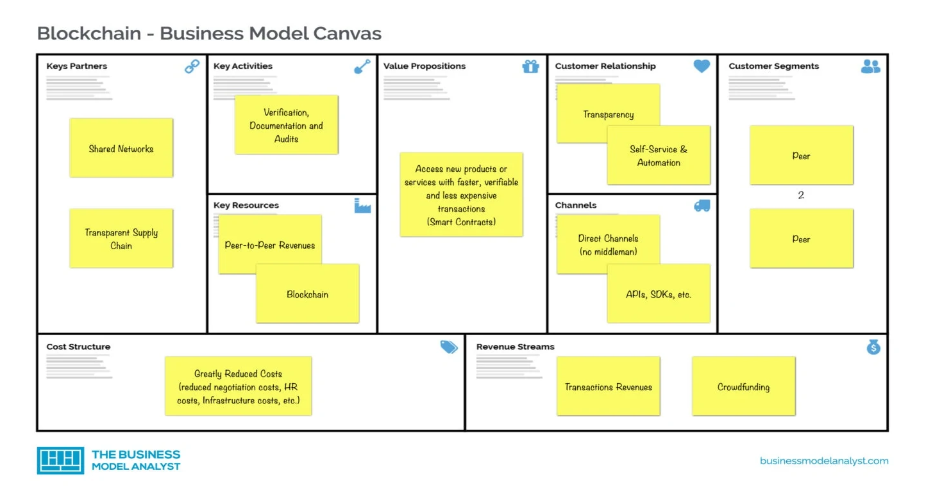Blockchain is one of the best technologies for any sector. It benefits from the speedy movement of verifiable, fraud-free information and transactions due to its Peer-to-Peer network and anti-tampering features. Contracts, financial procedures, and marketing transactions are essential to the financial sector.
- Blockchain Technology is a trending technology as Financial Service providers nowadays consider it more useful for security, risk management & authenticity.
- Traditional business models rely on centralized data, which makes it vulnerable to tampering & hacking. Blockchain Technology is more secure.

So the main question arises here, “Is Blockchain Technology going to replace current traditional business models?” or,
“What’s the hype about blockchain and whether distributed ledger systems have any potential to take over the market?”
In this article, We are going to answer all your questions.
What is a Blockchain Business Model?
A business model describes a plan or strategy of a company to sell a product or service and earn profit on its behalf. Each company has its way of handling business. However, there is a centralized model composed of the owner & shareholders, customers, and employees.
Blockchain Business model possesses all the main characteristics of Blockchain technology, Decentralized, Peer to peer transaction, and operates within a trusted and reliable network.

Types of Blockchain Business Model:
- P2P Blockchain Business Model: Blockchain has always been peer-to-peer, allowing end users to interact with each other. The profit here is made via Tokens, Baas(Blockchain as a service), transaction fees, etc. IPFS & Filecoin is a famous example of platform that helps data storage and sharing.
- Baas Business Model: Blockchain as a service(BaaS) business model allows the client to outsource all the backend structures and focus primarily on the front end. Blockchain technology and the ecosystem can be pretty intimidating for people in general.
Utility Token Business Model:-
The utility token business model drives functionality into business via tokens, which facilitate network activities. Nowadays, plenty of startups, companies, and e-commerce websites use the utility token business model. The token utility has three essential properties: role, feature, and purpose.
There are different roles and features in Token Business Model, such as:-
- Right: with a particular token, the holder gets certain rights within the ecosystem.
- Value Exchange: the tokens create an internal economic system to help buyers and sellers trade value within the ecosystem.
- Toll: it acts as a toll gateway to use specific functionalities of a particular system.
- Function: the token enables the holder to enrich the user experience inside a particular environment.
- Currency: a store of value that can be used to conduct transactions inside and outside the given ecosystem.
- Earnings: it allows an equitable distribution of profits and benefits among investors in a particular project.
Blockchain Technology over Traditional Business Model?
The primary challenges ailing the Traditional Business processes like supply chains aren’t agile enough as they don’t anticipate the rapid changes in the market, making them costly, data-intensive, and inefficient.
In most cases, they are characterized by excessive paperwork and conflicting records, causing delays due to manual reconciliation processes.
Here comes its best substitute Blockchain model,, which reduces all these problems and insecurities because its whole working process or methods are decentralized, making it more secure and fast than the the Traditional model.
That means here you can trust as every user in the network has to consent to accept any transaction.
Conclusion
Like other technologies, these will also introduce their own set of security issues. Large-scale attacks on smart contracts have yet to materialize, but we’ve already seen the first reports on vulnerabilities that could lead to them. Don’t be afraid of new technologies, but use common sense when you adopt them in your environment.
